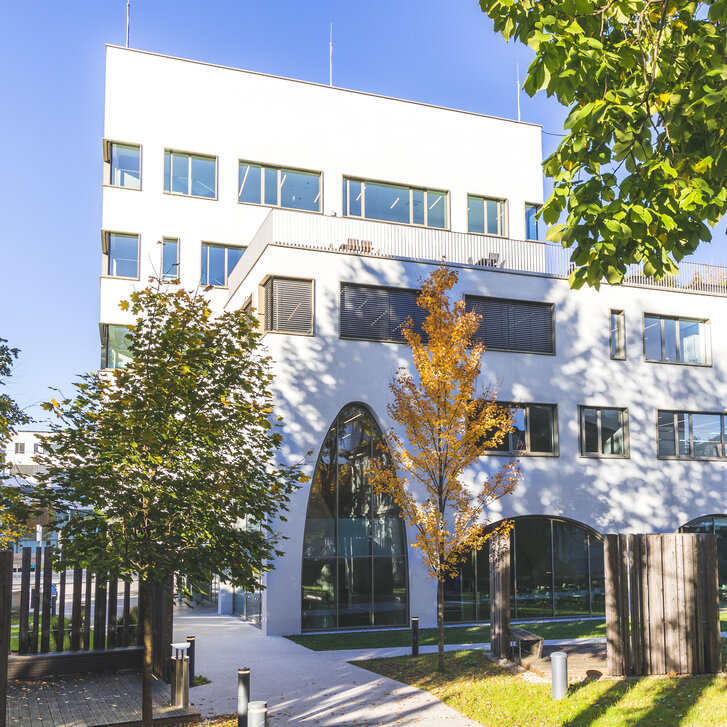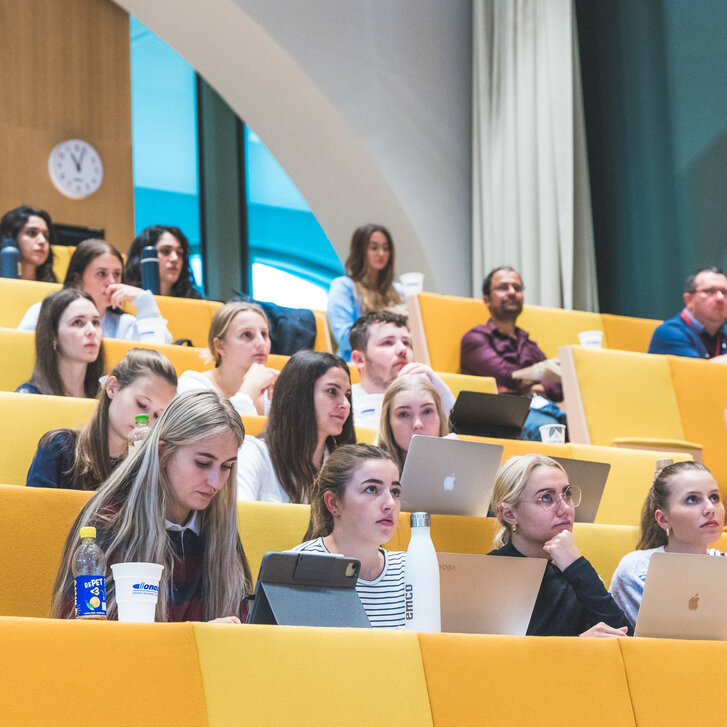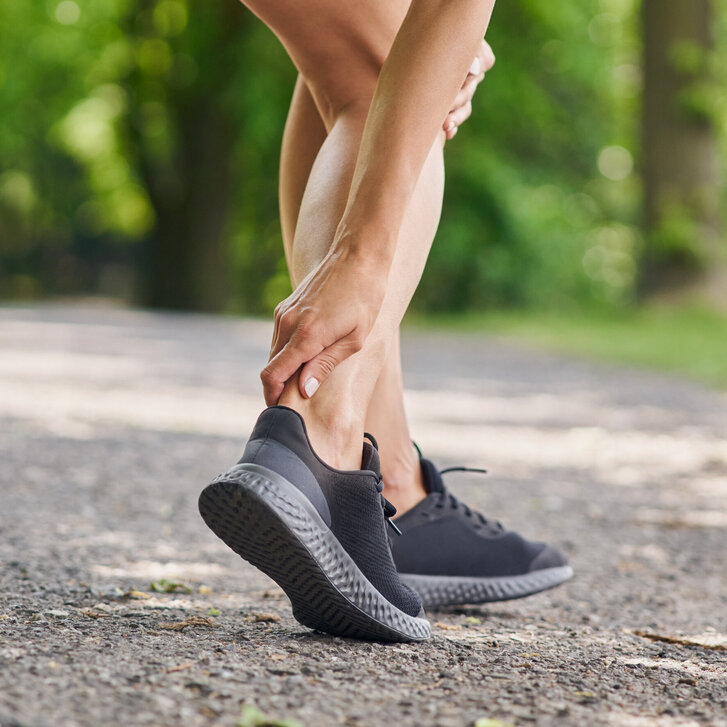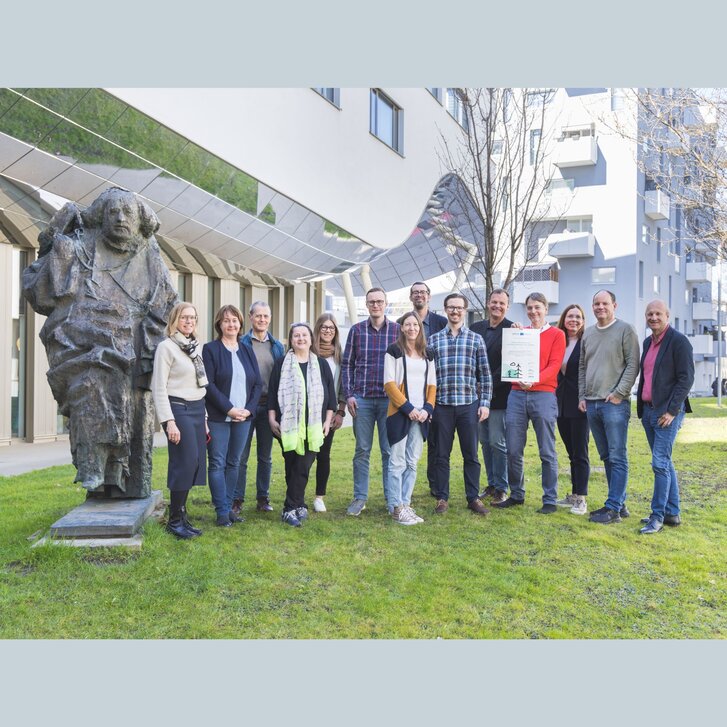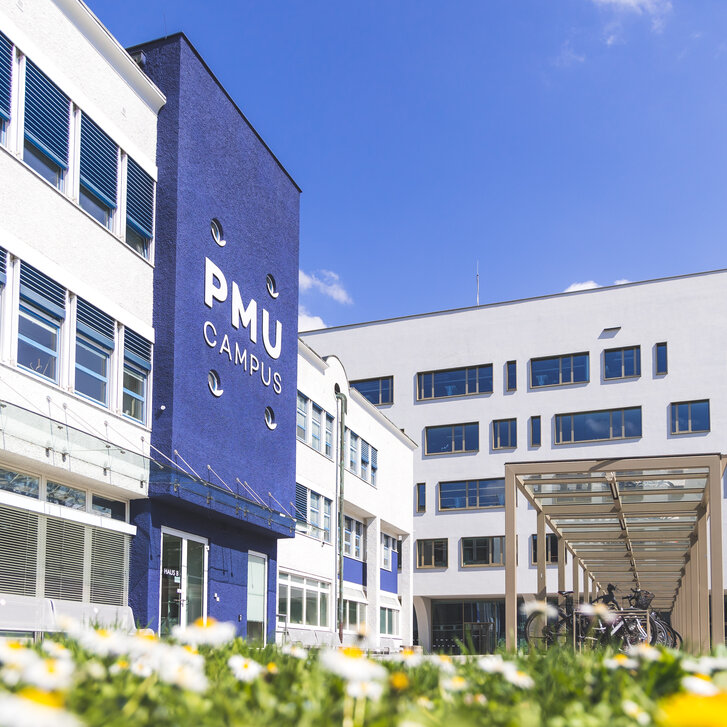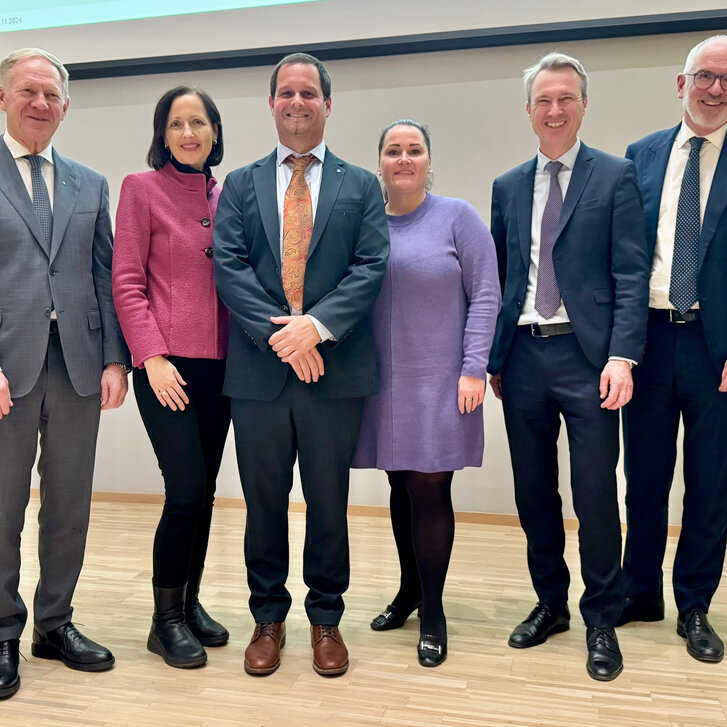
"Prehab 2 Rehab" - Project Launch for Efficient Transition from Prehabilitation to Rehabilitation

The goal of the new Austria-wide project Prehab2Rehab, in which the Paracelsus Medical Private University (PMU) is a partner, is to better prepare patients with digital technologies for planned surgeries and to make recovery more efficient.
"Success in all matters depends on preparation" is a quote attributed to Confucius. This wisdom also applies to the preparation of patients for planned surgeries and their optimal aftercare. In other words, those who are well-prepared and well-supported after surgery experience fewer complications and recover more quickly. The two medical terms "prehabilitation" (preparation for surgery) and "rehabilitation" (recovery after treatment) are the namesakes of the new, Austria-wide flagship project funded by the FFG, "Prehab2Rehab." Its goal is to provide more targeted support to people from the specific preparation for surgery through to subsequent rehabilitation measures. Through digital technologies, patients should be individually prepared for surgery and receive follow-up care in the best possible way. "Prehab2Rehab" initially focuses on planned knee replacement surgeries as well as surgical interventions for the heart, liver, and gallbladder. The kick-off took place on May 27 with an information event in Salzburg, where the consortium, composed of partners from science, clinic, and technology, introduced itself. Among others, the project is led by the Ludwig Boltzmann Institute for Digital Health and Prevention, with the participation of the Paracelsus Medical University (PMU) and the Salzburg University Hospital (SALK).
Promising Model: Prehabilitation
Prehabilitation can help sustainably improve recovery and the success of planned surgical interventions. It is based on training interventions but can also include other personalized interventions such as nutrition, psychological support, or patient blood management—typically in the period of 2-6 weeks before surgery. In Austria, prehabilitation has not yet been part of the healthcare system. Here, Prehab2Rehab aims to close the gap and, for the first time, support prehabilitative and rehabilitative measures along the entire treatment path, combining conventional measures with digital technologies.
Fit for Surgery via App
How can this work? Even before surgery, patients prepare with targeted training, exercises, and tips. Digital technologies should help transfer important patient information into rehabilitation to make it even more effective. After surgery, rehabilitation helps to get fit again—with targeted exercise programs and therapies. Thanks to modern apps and online platforms, patients can receive important information, training videos, nutrition plans, or reminders directly on their phones. An illustrative example: Anna, 55, prepares for her knee surgery with an app. She regularly does recommended exercises at home and receives praise and tips via the app. After the surgery, she uses the same app to track her rehab exercises and discuss them with her physical therapist. Another example: Mr. Müller, 65, has undergone heart surgery. Even before the procedure, he learned through an online platform how to best prepare. After the surgery, he receives digital instructions on how to move correctly, what to eat, and how to avoid stress. Prehab2Rehab links prehabilitative and rehabilitative measures along the entire patient pathway for the first time—data-driven, digitally supported, and individually tailored. It is thus a promising model for future-proof, preventive healthcare.
Who is Behind the Project Prehab2Rehab
With Prehab2Rehab, an Austria-wide FFG flagship project is launched, supported and guided by an interdisciplinary consortium. This consortium combines comprehensive clinical, academic, and technological expertise and consists of the Ludwig Boltzmann Institute for Digital Health and Prevention (project lead), the Ludwig Boltzmann Institute for Arthritis and Rehabilitation, the Ludwig Boltzmann Institute for Rehabilitation Research, the Salzburg University Hospital, the Paracelsus Medical Private University, the Medical University of Vienna, the Rehabilitation Center Bad Vigaun, Salzburg Research, LOIDL Consulting & IT Services GmbH, Alphaport OG, MOTUM GmbH & Co KG, stAPPtronics GmbH, REDOX GmbH, and RedLink GmbH.
The PMU scientist Assoc. Prof. Dr. Gunnar Treff from the Institute of Molecular Sports and Rehabilitation Medicine leads a central work package in the project, in which clinical feasibility studies are conducted at the locations Salzburg, Bad Vigaun, and Vienna. The goal is to integrate tailored prehabilitation programs into clinical practice.
Such a program is also being implemented at the Salzburg State Hospitals (SALK): Priv.-Doz. Dr. Löb is the head of Hepatobiliary and Pancreatic Surgery in the University Clinic for Surgery. He has actively contributed to and advanced the project from the beginning. As a result of his initiative, a prehab group specifically for patients of the hepatobiliary and pancreatic surgery department will be established at the University Institute for Preventive and Rehabilitative Medicine under the direction of Prim. Univ.-Prof. Dr. Dr. Niebauer, MBA, as part of the project.
Photo: from left to right Dr. Daniela Wurhofer (Ludwig Boltzmann Gesellschaft, deputy project lead), Dr. Jan David Smeddinck (Ludwig Boltzmann Gesellschaft, project lead), Prim. Univ.-Prof. Dr. Dr. Josef Niebauer (Head of the University Institute for Preventive and Rehabilitative Medicine, SALK/University Hospital), Dr. Clemens Schmutzhart (Assistant Doctor, PhD Student in HPB Surgery, SALK/University Hospital), Assoc. Prof. Dr. Gunnar Treff (Institute for Molecular Sports and Rehabilitation Medicine, Group Leader, PMU)
Contact and Further Information
- Project Lead Ludwig Boltzmann Gesellschaft: Dr. Ing. Jan David Smeddinck, jan.smeddinck[at]lbg.ac.at
- Principal Investigator PMU: Assoc. Prof. Dr. Gunnar Treff / Institute of Molecular Sports and Rehabilitation Medicine, Group Leader, gunnar.treff[at]pmu.ac.at
Contact Person University Hospital/SALK: Priv.-Doz. Dr. med. Stefan Löb, Senior Physician, Head of Hepatobiliary and Pancreatic Surgery, Visceral Surgery, Special Visceral Surgery, University Clinic for Surgery, s.loeb[at]salk.at | Prim. Univ.-Prof. Dr. Dr. Josef Niebauer, MBA, University Institute for Preventive and Rehabilitative Sports Medicine, j.niebauer[at]salk.at
Translated by Le Chat / Mistral AI




